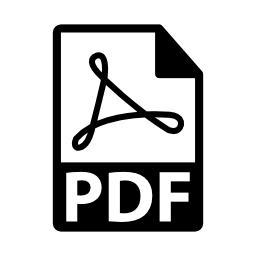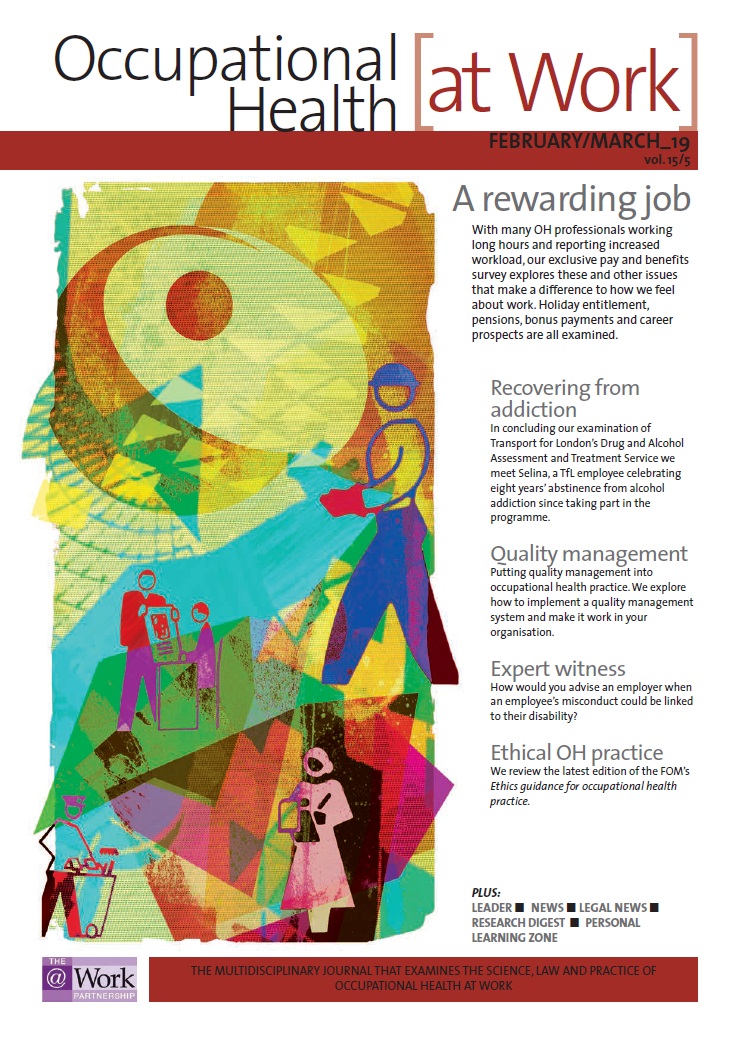February/March 2019 (vol. 15/5)
ContentsFeaturesNewsLegal
NewsResearch DigestResearch PlusCPD
 Personal Learning Zone in this issue
Personal Learning Zone in this issue
Summary:
FEATURED ARTICLES
This issue of Occupational Health [at Work] features a Personal Learning Zone (PLZ) article recommended for continuing professional development (CPD). The assignment questions, ‘Personal learning statement’ and ‘Certificate of engagement’ are available to subscribers here. These will also be stored in your password-protected PLZ. The PLZ will help you document your own CPD. Occupational health physicians and nurses, occupational hygienists and other professionals can use the resource in support of their specialism’s revalidation or CPD requirements.
Pages 39–41. Disability and misconduct. An employer is entitled to dismiss an employee for gross misconduct, but it can be unlawful discrimination if the misconduct arises from a disability. The Equality Act 2010 section 15 provides that an employer is liable if it treats a person unfavourably ‘because of something arising in consequence’ of their disability – but only if it knows, or ought to know, that the person is disabled, and cannot justify its actions as a proportionate means of achieving a legitimate aim
ADDITIONAL CPD
The following articles, news and research items are suggested reading for CPD and professional revalidation. Subscribers can complete their online Personal Learning Zone CPD record here
Pages 9-12. In Lamb v Garrard Academy, an employment tribunal had incorrectly determined the date that an employer was deemed to know about an employee’s disability. Knowledge is required, not just of the impairment but also if it has a substantial and long-term adverse effect on the individual’s ability to carry out normal day-to-day activities. The case also demonstrates the importance of resolving grievances efficiently.
Pages 13–16. The FOM has published the eighth edition of its Ethics guidance for occupational health practice. Practitioners will need to take particular note of its advice concerning consent and confidentiality, including when it may be ethical to breach consent; for example, to protect the health and safety of others.
Pages 31–35. Quality management is an essential element of modern occupational health practice, but introducing a quality management system requires careful planning and long-term commitment.
Pages 41. Our compendium of recent research in occupational health includes a randomised controlled trial of a multicomponent educational intervention to reduce the prevalence of job strain among intensive care nurses, and a Cochrane systematic review of strategies for improving the implementation of evidence-based workplace health-promotion policies and practices.
Author: The At Work Partnership Ltd
Occupational Health at Work February/March 2019 (vol. 15/5) pp43



